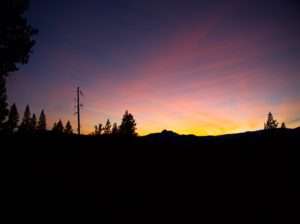After our tour of several southern Utah National Parks it was time to settle in to Canyonlands for a few days. We left our camp along the Colorado River outside of Moab fairly early and stuck out for the White Rim Trail.

I do admit to being struck with a bit of anxiety over not knowing exactly what to expect or what trouble we might encounter along the trail. For those not familiar with the trail it is a 100 mile backcountry road located primarily in Canyonlands National Park that follows a shelf of white sandstone above the Colorado and Green rivers above their confluence. It is extremely scenic and somewhat remote with reservable campsites along the way. Oh, and a couple of steep and narrow four-wheel drive sections to liven things up.
You depart the Canyonlands front country near the visitors station and are immediately met with the decent down the switchbacks of the Shafer trail. It appears a little harrowing as there are steep drop offs but the road is in good condition and you just take it slow and enjoy the trip downhill.

Along the way we referred to the book “A Naturalists Guide to the White Rim Trail” which gives a mile by mile guide as well as some natural and human history and geology of the area. Referring to the Shafer trail it stated that early on the trail was used as a way to get cattle to the lower country, but being only “one cow wide” when a cow went over the edge you just kept on with the drive as that cow was lost.

We had better luck than some of those cows and soon found ourselves on the level with the White Rim, passed the road junction with the Shafer trail leading off to Moab, and a couple of years after being inspired to visit by reading reports on Wander The West and several months after hatching the plan to visit, off we went on the White Rim trail.

After the first few miles we took the first side hike out to see the Colorado from the Gooseneck trail. It was a short hike and well worth the walk.


Then it was back in the truck and onwards. This was probably the busiest point in the trip for us. There were three other vehicles in the area besides us, utterly crowded. They seemed to be out for the day and as we moved on we quickly lost sight of them and slipped into solitude for most of the trip with only an occasional oncomer from the other direction that we encountered along the trail during the days along with a few scattered bikes and motorcycles.
Before too long we were to our next stop, Musselman Arch. The White Rim is less erodible than the shale beneath it and as such forms a shelf that is slowly crumbling away from below. It creates some stunning overhangs as well as the Musselman arch.

From the arch we moved onward. I wasn’t quite sure what to expect in terms of travel time to our first camp so we tried to put a few miles behind us as we enjoyed the scenery. It turns out we had plenty of daylight left when we did eventually arrive in camp.

Not only do you have all the features and the river down below the rim but you also have a lot of neat features in the Navajo sandstone above you to marvel at. One interesting one is known as the washer woman who you encounter in the vicinity of the first camps along the trail, Airport Camps.

We bounced into our camp at mid afternoon. All camps are pre-reserved along the trail so there is no pressure to scramble for one. Our first site was Gooseberry B. A and B camps are located across the road from each other with enough space in between to not feel too crowded. Camps are designated by boundary posts to limit the impacts on the soil and vegetation.

Camp A was occupied that night but the occupants didn’t arrive until right at dusk so we had the place more or less to ourselves. We took a wandering look around above camp and enjoyed the view.

We took a wander out to the edge of the rim before sunset and noted the ongoing geological action and cracking of the white layer of sandstone.



Back at camp we enjoyed the sunset and light playing off the distant red rock with the La Sal mountains in the distance.

A nice end to the first day on the trail filled with stunning vistas, big blue skies and quiet.


Very nice, beautifully photographed, we did the Trail in October of this year.
Oh lucky you, I’ll bet October is a great time to be on the trail.